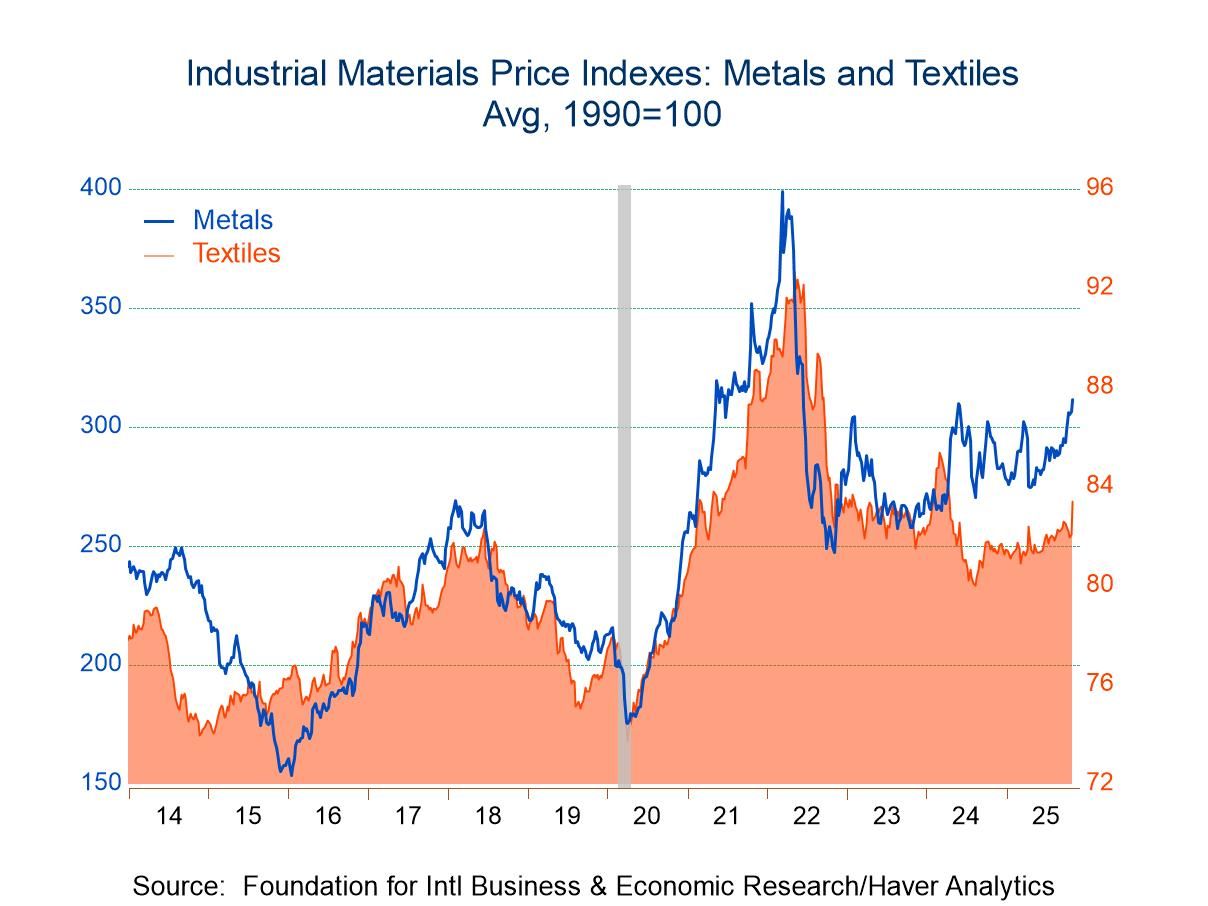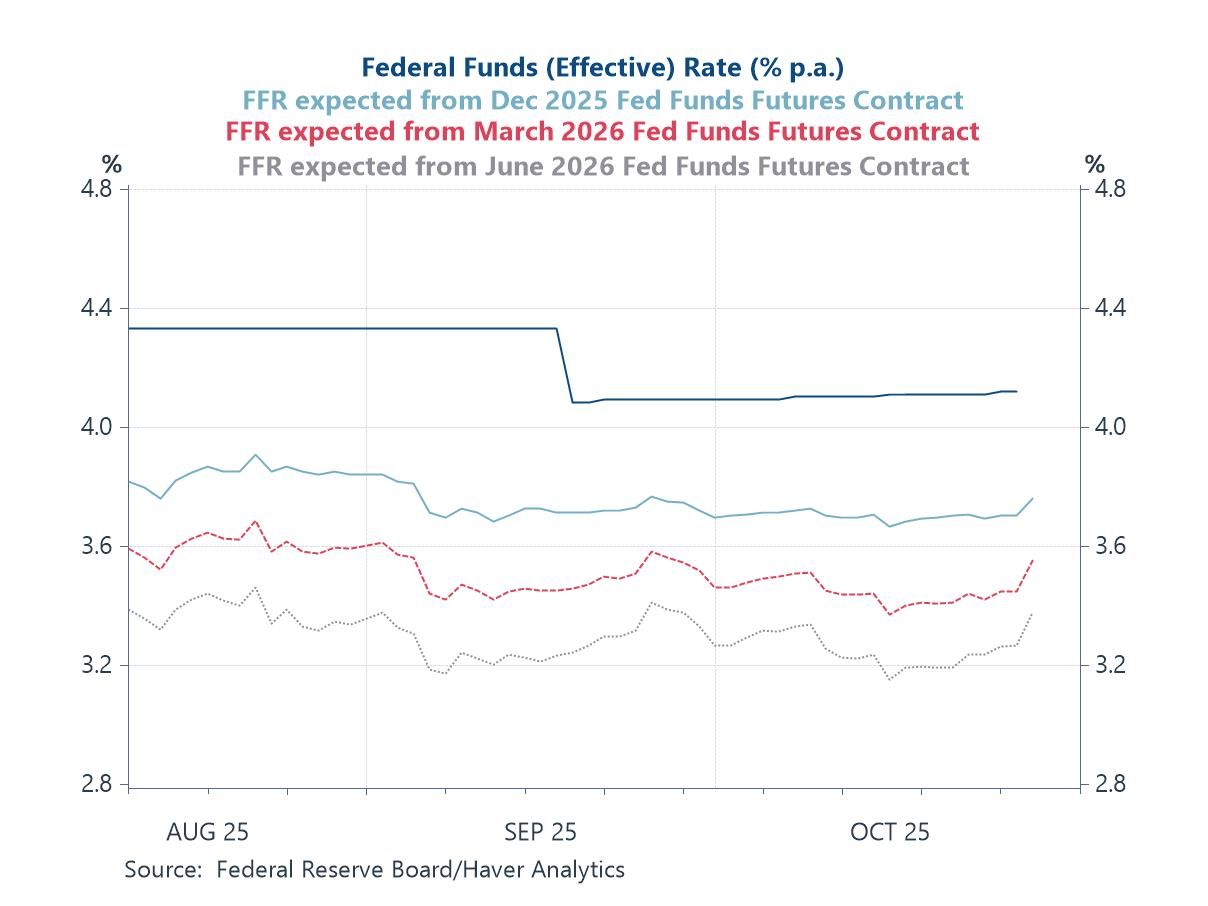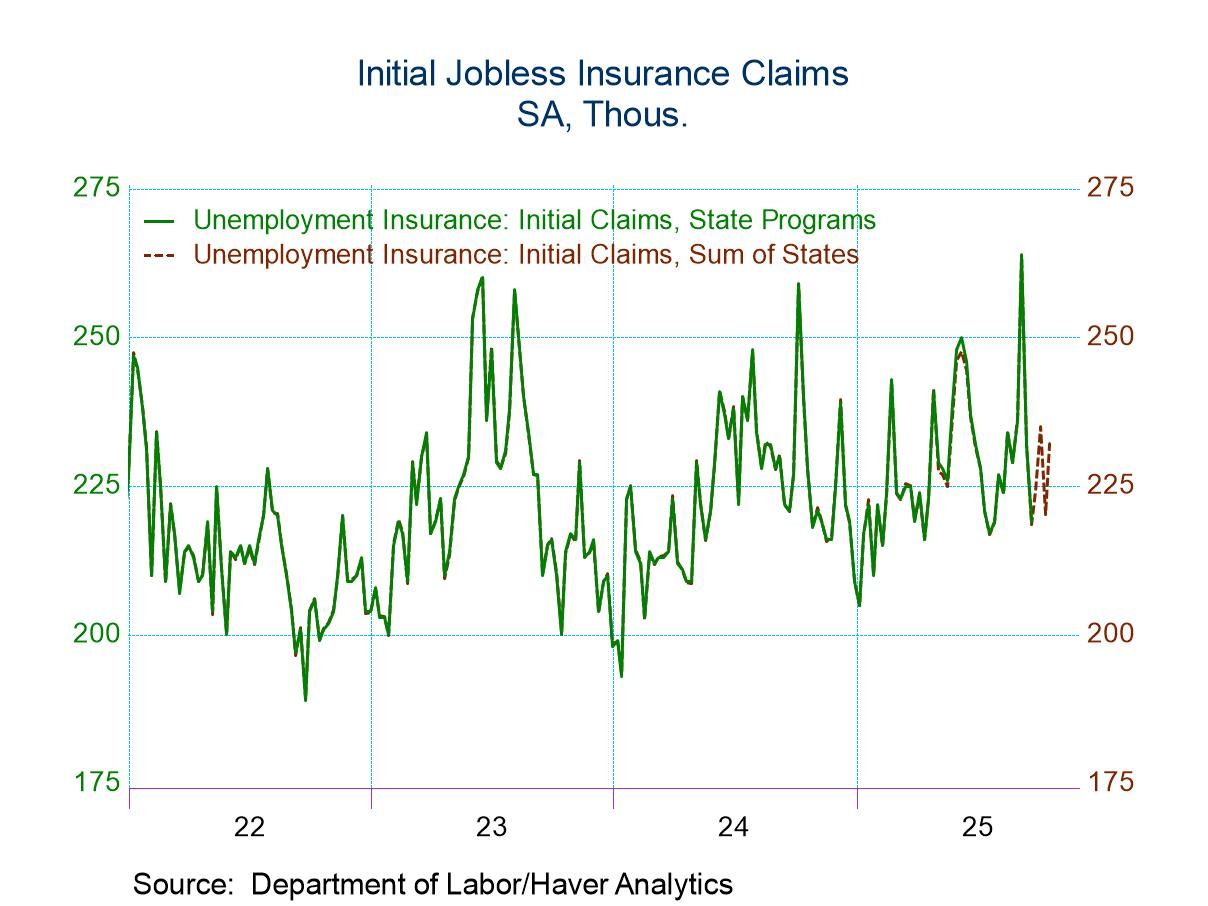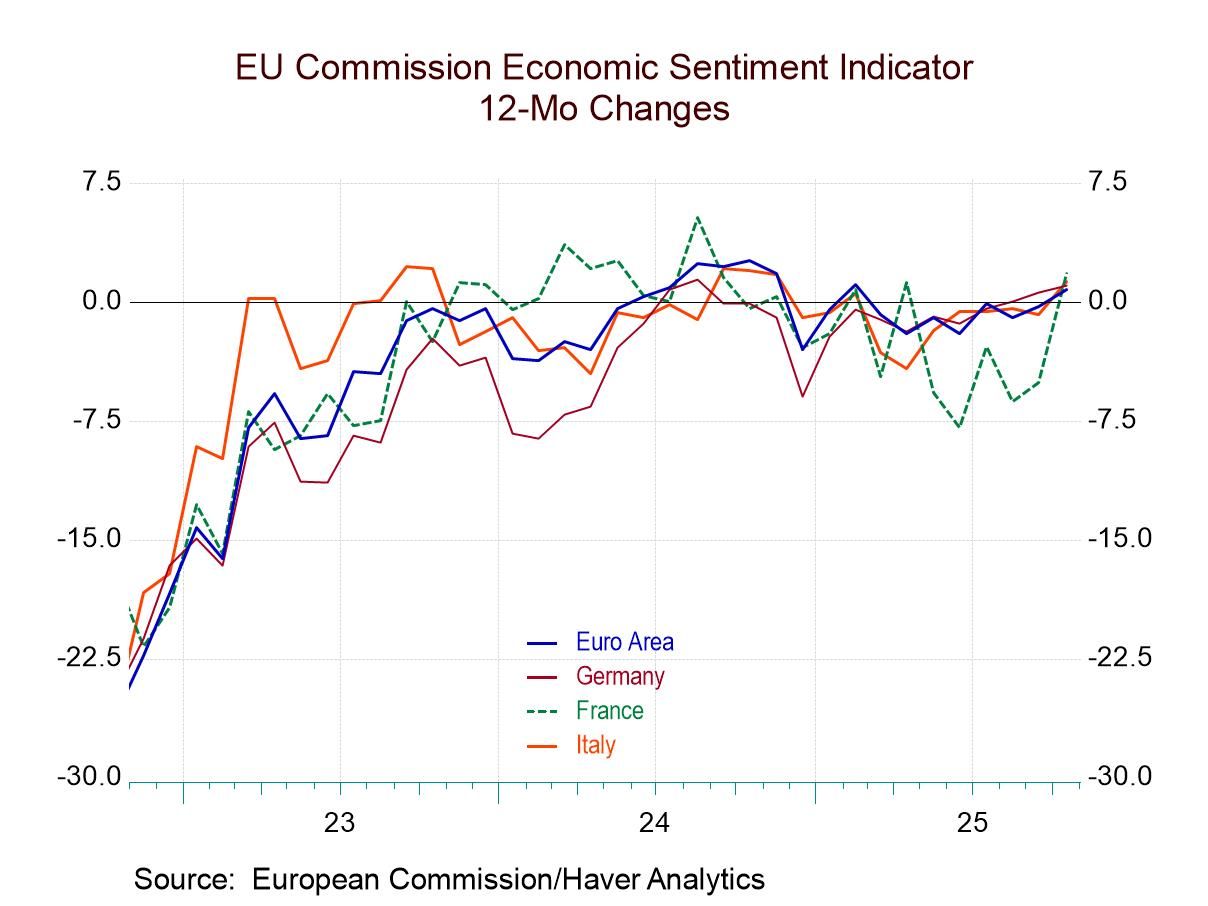 Global| Apr 24 2008
Global| Apr 24 2008U.S. Durable Goods Orders Dipped Unexpectedly
by:Tom Moeller
|in:Economy in Brief
Summary
During March, new orders for durable manufactured goods dipped 0.3% after falling 0.9% in February, a decline which was less than the 1.7% drop reported initially. Consensus expectations had been for a slight 0.1% uptick in March [...]
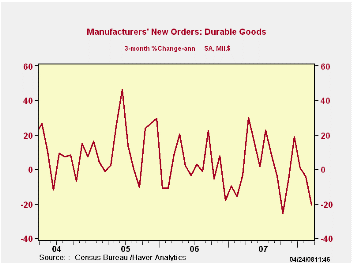
During March, new orders for durable manufactured goods dipped 0.3% after falling 0.9% in February, a decline which was less than the 1.7% drop reported initially. Consensus expectations had been for a slight 0.1% uptick in March orders and it was the third consecutive m/m decline.
Outsized weakness was registered in the transportation sector where new orders fell 4.6%. Excluding the volatile transportation sector durable goods orders rose 1.5%, double the expected gain. A 2.1% February decline in orders was little revised.
The 4.6% decline in transportation equipment orders was led by a 4.6% (-14.7% y/y) downdraft in orders for motor vehicles & parts. That was partially offset by a 10.7% gain in new orders for aircraft & parts. Orders for nondefense aircraft & parts rose 5.5% (-18.9% y/y), about the same as they did in February.
Orders for nondefense capital goods rose 1.5% after a revised 0.3% dip during February. During the last ten years there has been an 80% correlation between the y/y gain in nondefense capital goods orders and the rise in equipment & software spending in the GDP accounts. The correlation with capital goods shipments is, as one would expect, a larger 92%.
March new orders for nondefense capital goods less aircraft were unchanged, following a little revised 2.0% February decline which was double the 1.0% drop during January.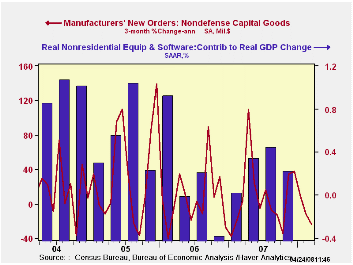
Orders for machinery rose 6.2% (1.9% y/y) and recovered about half of the February decline.Computers & related products orders rose 1.6% on the heels of February's 11.3% surge while new orders for communications equipment dipped 0.3%. More extreme weakness in these orders is indicated by the sharp 19.2% decline from their peak level last July. Primary metal orders ticked up 0.2% (6.3% y/y).
Overall shipments of durable goods dipped 0.4% (+0.4% y/y) as shipments from the transportation sector fell 1.9% (-5.3% Y/Y). Less transportation, shipments ticked up 0.2% (2.5% y/y).
Inventories of durable goods backed up by 1.1% (5.1% y/y). The three month gain in durable goods inventories remained about steady with the prior several months at 8.6% (AR). That is, however, sharply elevated from the -0.1% rate of decumulation last August. Less transportation, inventories also rose at an accelerated 4.9% rate during the last three months.
Maintaining Stability in a Changing Financial System: Some Lessons Relearned Again? From the Federal Reserve Bank of Kansas City can be found here.
| NAICS Classification | March | February | Y/Y | 2007 | 2006 | 2005 |
|---|---|---|---|---|---|---|
| Durable Goods Orders | -0.3% | -0.9% | -2.1% | 0.9% | 6.3% | 9.9% |
| Excluding Transportation | 1.5% | -2.1% | 2.2% | 0.2% | 7.6% | 8.8% |
| Nondefense Capital Goods | 1.5% | -0.3% | -3.3% | 3.5% | 10.6% | 17.1% |
| Excluding Aircraft | 0.0% | -2.0% | 1.7% | -1.6% | 8.5% | 11.1% |
Tom Moeller
AuthorMore in Author Profile »Prior to joining Haver Analytics in 2000, Mr. Moeller worked as the Economist at Chancellor Capital Management from 1985 to 1999. There, he developed comprehensive economic forecasts and interpreted economic data for equity and fixed income portfolio managers. Also at Chancellor, Mr. Moeller worked as an equity analyst and was responsible for researching and rating companies in the economically sensitive automobile and housing industries for investment in Chancellor’s equity portfolio. Prior to joining Chancellor, Mr. Moeller was an Economist at Citibank from 1979 to 1984. He also analyzed pricing behavior in the metals industry for the Council on Wage and Price Stability in Washington, D.C. In 1999, Mr. Moeller received the award for most accurate forecast from the Forecasters' Club of New York. From 1990 to 1992 he was President of the New York Association for Business Economists. Mr. Moeller earned an M.B.A. in Finance from Fordham University, where he graduated in 1987. He holds a Bachelor of Arts in Economics from George Washington University.



